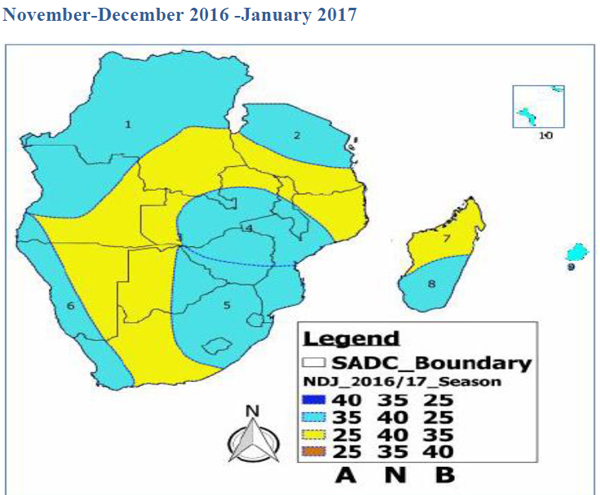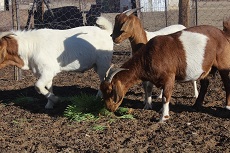
Drought conditions linger on

21 December 2016 – As with the previous season, the National Early Warning and Food Information Unit in the Ministry of Agriculture, Water and Forestry predicts again poor rainfall to trigger the cultivation activities.
Cultivation has however started despite the findings from the latest Agricultural Inputs and Household Food Security Monitoring Assessment released.
In the first month and a half of the current rainfall season, from October to November 2016, the assessment shows that by late November to early December, most parts of the country reported moderate to good showers.
Based on these findings, the assessment suggests for interventions and future assistance to improve the 2016/2017 agricultural production cycle. Strategies such as avoiding delayed cultivation and taking advantage of first rainfall and the use of early maturity crop varieties have been suggested..
Due to the possibility of below normal rainfall conditions during February- March- April period throughout the country, the Directorate of Extension is requesting farmers to take the necessary precautions.
Currently, about 595 839 people continue to receive drought relief food assistance countrywide. Government provides drought relief interventions to assist over 700 000, about 32% of the population.
The drought relief programme includes the provision of food, water, seeds and the provision of incentives to farmers to sell or cull some of their livestock in order to relieve pressure on grazing.
The assessment shows that for the past two successive seasons, as well as the 2012/2013-agricultural season, the country experienced the worst drought conditions in its history and government has been putting more efforts and resources to mitigate the impacts of drought which did not only affect the agriculture sector, but also the national economy as a whole.
However, according to farmers this year’s drought is much better, since there are few cases of livestock deaths due to poor grazing condition as compared with the same period last year.
According to the assessment, grazing is expected to improve with good rainfall conditions expected during December throughout the January and February period.
The realised assessment shows that during last season’s drought period, household food security continued to weaken as many households reported to have depleted their last season’s poor harvest and are now dependent on the market and access to food through Government Drought Relief Food Programme.
It is also suggested that drought relief provisions are timely and that basic inputs and easy access to farmers seeking services at the Agricultural Development Centres.
In view of the poor drought animal conditions, the Directorate of Extension is instructed to ensure the availability of Government tractors, and also encourage private tractor owners to participate in the government ploughing subsidy services in order to assist farmers to plough their crop fields.
Meanwhile, for the weakening household food security, the Regional Councils with the assistance of traditional leaders are advised to continue monitoring the situation and provide the drought relief foods to households facing food insecurity in their respective regions.












































